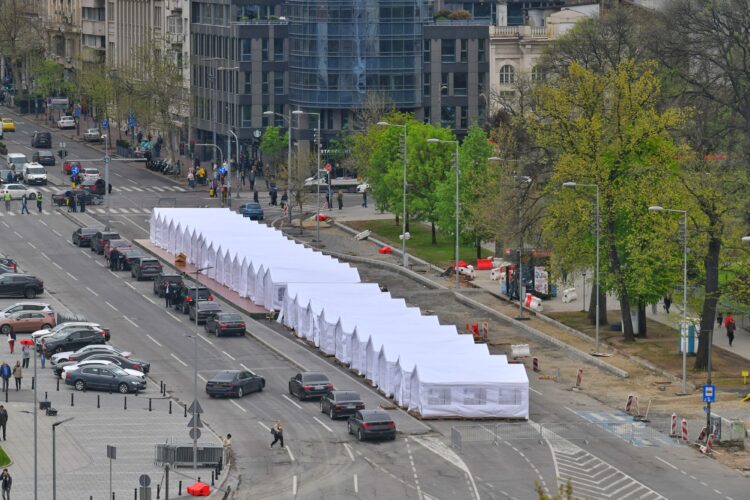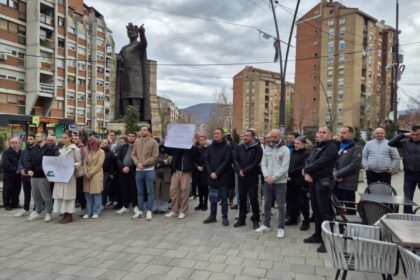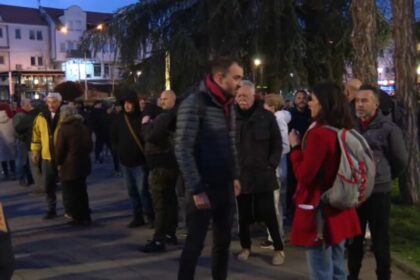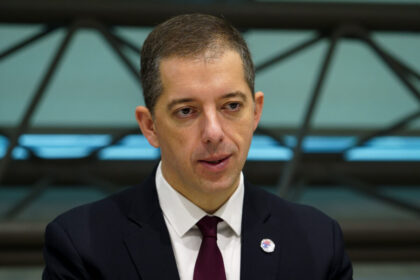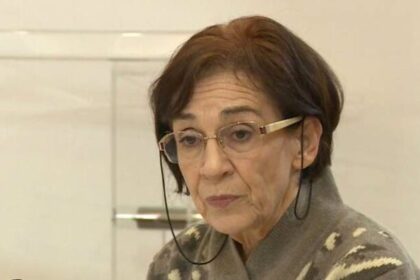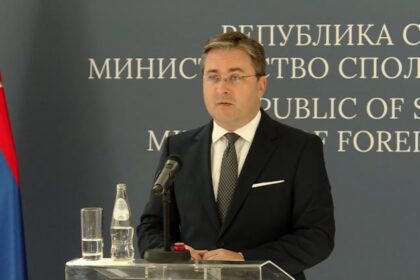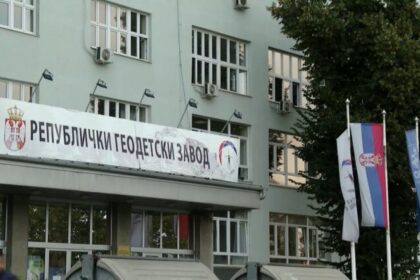**Tent Camp Expansion Fuels Tensions in Serbia**
A large group of people arrived at the Serbian Parliament on Wednesday, swelling the number of protesters outside the building. The new arrivals were bussed in and set up a row of white tents across the street from the main entrance, mirroring a similar camp already established in front of the Presidency Building.
The opposition Movement for Free Citizens (PSG) has been vocal about their concerns regarding these developments. Vladimir Pajic, an MP from the party, told N1 reporters that the people who arrived in the buses seemed reluctant to be there. “This is false support,” he said, implying that President Aleksandar Vucic’s Serbian Progressive Party (SNS) was behind the move.
Pajic further alleged that the SNS and the government are trying to suppress opposition activities and student protests by taking over the area around the Parliament building. “They’re slowly taking over the whole area,” he said, adding that his party had filed criminal charges over the destruction of a park in the area.
The atmosphere outside the Parliament building remains tense, with protesters from both sides trading insults and accusations. Just earlier this week, an N1 reporter was assaulted by a man who covered his face, highlighting the escalating tensions between pro-regime supporters and opposition groups.
As the situation continues to unfold, it’s clear that the Serbian government is using its influence to shape public opinion and suppress dissent. The opposition, on the other hand, remains committed to their cause, despite facing growing hostility from regime supporters.
**Commentary**
The expansion of the tent camp outside the Serbian Parliament is a worrying sign of the increasing polarization in the country. As the government cracks down on opposition activities and student protests, it’s becoming clear that Vucic’s administration will stop at nothing to maintain its grip on power.
The use of “false support” – bussed-in protesters who seem reluctant to be there – is a clever tactic by the SNS to create a sense of momentum for their cause. However, this move only serves to highlight the regime’s desperation and willingness to manipulate public opinion.
As tensions continue to rise, it’s essential that the international community pays attention to the situation in Serbia. The country’s fragile democracy is under threat, and it’s crucial that we all speak out against these authoritarian tendencies.
**Deeper Analysis**
The Serbian government’s actions are part of a broader trend of increasing repression in Eastern Europe. As governments become more authoritarian, they often turn to tactics like mass mobilization (in this case, the bussed-in protesters) to create a sense of popular support for their policies.
However, these efforts often backfire, as the public becomes increasingly skeptical and disillusioned with the government’s actions. In Serbia’s case, the opposition is more determined than ever to challenge Vucic’s administration, despite facing growing hostility from regime supporters.
The situation outside the Serbian Parliament serves as a reminder that democracy is fragile and requires constant vigilance. As we monitor this developing story, it’s essential that we hold the government accountable for its actions and support the brave individuals who are standing up against authoritarianism in Serbia.




